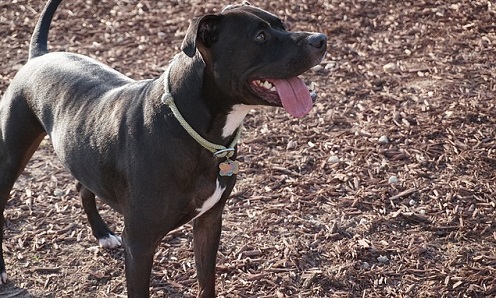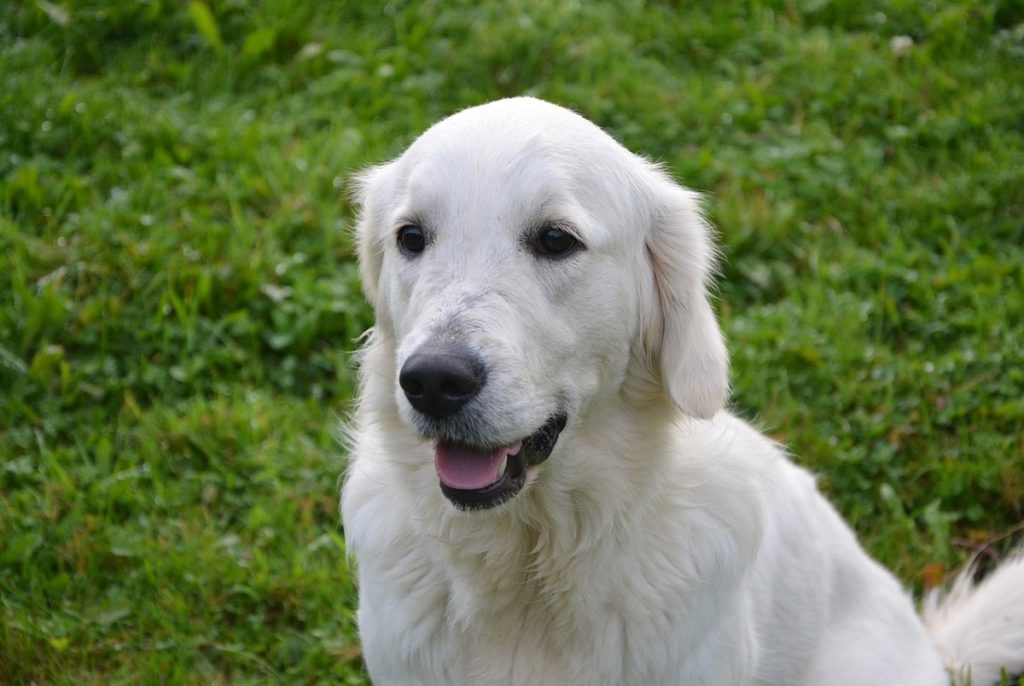Preparing for your dog’s surgery can feel overwhelming. Whether your pet is getting neutered, a bone fracture repair, or a hip replacement, prepping for the procedure may be stressful. Similar to a human’s surgery, there are a lot of things to remember when you prepare for dog surgery. You’ll have to know if there is any required testing to be done to qualify for an operation, when your pup is allowed to eat, what medications are needed, and how to care for your pet when they come home from the vet. Your veterinarian clinic will give you instructions and information about what to expect for dog surgery, but it’s still a lot to take in.
While some dog surgeries are last-minute emergencies, planned operations are relatively easy to prepare for. If you know exactly when your dog will go in for surgery and what type of surgery they are having, you’ll be able to have everything ready ahead of time. Discover information and tips on how to prepare for dog surgery here!
How to Prepare Your Dog for Surgery
Before your dog is scheduled for surgery, your vet may require some blood work, radiographs, ultrasounds, or other tests to verify that general anesthesia will be safe for your pet. While this step may seem unnecessary, it’s a vital part for ensuring a safe surgery. During this time, check with your vet to see if any vaccinations are required for their stay at the pet hospital. Parvovirus in dogs, rabies, Bordetella, and canine distemper vaccinations are typically required before a dog has surgery.
At this preliminary appointment, you’ll also schedule a date and time for your dog’s surgery. If your dog is in need of a haircut or bath, make sure to do this before the surgery date because you’ll have to keep the incision site dry for a few weeks after the operation.
One Week Before Dog Surgery
Make sure your dog receives all required vaccinations at least five days prior to the surgery appointment so that they have time to reach the immune system.
The Day Before Dog Surgery
 If your dog regularly takes medication, there may be certain requirements or restrictions on administering it the night before or the morning of surgery as many procedures will require an empty stomach. In addition to inquiring about medication, be sure to get your vet’s advice on exercise, eating, and drinking the day before surgery.
If your dog regularly takes medication, there may be certain requirements or restrictions on administering it the night before or the morning of surgery as many procedures will require an empty stomach. In addition to inquiring about medication, be sure to get your vet’s advice on exercise, eating, and drinking the day before surgery.
The day before your dog has an operation is a good time to prepare your home for the following day. Home prep may involve making accommodations for other pets in your household, setting up your dog’s crate, and packing any special food or medications for the trip to the pet hospital. It may also be a good idea to wash your dog’s bedding to prevent any type of bacterial infection after the procedure. You might also section off an area of your home where your dog can rest and recover from the operation. Trying to prepare your dog’s bed or area after picking them up from surgery can be hectic. Setting things up the day before will make the process go much more smoothly the next day.
Some pet owners choose to brush their dog’s hair, cut their nails, clean their ears, and other canine grooming practices the day before surgery since they won’t be able to bathe their pet for a couple of weeks. Trimming your dog’s nails will also prevent them from scratching at their incision site after surgery.
Check in with your vet clinic to see if any special diet is required for your dog after surgery and plan accordingly. You’ll want to purchase and prepare this food ahead of time so that you can feed your dog when you get home after surgery.
In most cases, dogs will need to fast for 8 to 12 hours before surgery. Fasting is meant to prevent nausea and vomiting when anesthesia is administered. Before going to bed the night before an operation, remove your pet’s food and water and make sure the lid is on your toilet bowl. If your dog does happen to find some food or water right before they are supposed to go in for surgery, be sure to inform your vet about what they ate or drank. Eating or drinking won’t necessarily mean your dog can’t go through with surgery that day, but it will give the surgeon a heads up for potential nausea during the operation.
It’s also important that your pup gets a good night’s sleep before going in for surgery. Adequate rest will help to reduce the stress and anxiety of being under the care of a veterinary clinic.
The Morning of Dog Surgery
On the morning of your dog’s surgery, make sure your pet is still refraining from food or water. In addition, you’ll want to take your pooch outside for a potty break before handing them off for a day inside a pet hospital.
It’s a good idea to allot plenty of time to drive to the pet clinic and aim to arrive a few minutes early to fill out last-minute paperwork and talk to the staff. Showing up late to your dog’s surgery appointment will contribute to your stress as well that of your dog and veterinarian. Be sure to leave your phone number with the clinic so they can call you when your dog is ready to be picked up or in case of an emergency. Try to stay calm and avoid emotional goodbyes with your dog. This will help tame your pet’s nerves and prepare them for the operation.
Bringing Your Dog Home After Surgery
Your vet will provide you with detailed instructions on how to care for your dog after surgery. In most cases, they will need to take medication to prevent dog pain, swelling, or infection following a surgical procedure. If the operation required an incision, your dog will most likely be sent home with an Elizabethan collar (cone collar) to prevent licking, scratching, or chewing which will interfere with the healing process.
Most animal surgeons will recommend that dogs significantly reduce their activity levels for a week or two after surgery. A surgical incision will need time to heal, but the recovery timeline and activity requirements will depend on the nature of the operation. Restricting your pup’s activity level can be difficult for puppies and active breeds. Keeping your dog indoors with the exception of potty breaks will usually suffice, but you may want to keep your dog in a crate for most of the day if your pet is especially rambunctious.
When you bring your dog home from surgery, it’s vital that you follow your vet’s exact instructions and contact the pet hospital if you have any questions or concerns. Keep an eye on your pup to make sure they are not licking, scratching, or chewing the incision area. Additionally, take note of your pet’s appetite and notify your veterinarian if they do not return to normal eating habits within a day or two.
Following dog surgery, it’s also important to only give your pet medications that are prescribed or recommended by the animal surgeon. Some over-the-counter medicines such as anti-inflammatories may be toxic in dogs, especially in conjunction with other medications. If your dog is acting strange or appears to be in a lot of pain a few days after surgery, contact your vet for a professional opinion on how to help your dog manage pain.
Types of Dog Surgery
Just like humans, pets sometimes need surgery to help them live a long, healthy life. A surgical operation is an occurrence in almost every dog’s life. A lot of dogs will only have surgery when they are spayed or neutered whereas others will have additional surgical procedures for a variety of reasons. The following are the most common types of dog surgery.
Sterilization Surgery
The most common type of surgery in dogs is sterilization surgery in which a male dog is neutered or a female dog is spayed. Neutering a dog is intended to prevent reproduction, canine aggression, testicular cancer, and reproductive diseases.
Orthopedic Surgery
 Orthopedic surgery in dogs involves operating on various parts of the musculoskeletal system which includes bones, joints, tendons, and nerves. Common orthopedic surgical procedures for dogs include hip replacement surgery, femoral head ostectomy, bone fracture repair, or patellar luxation surgery.
Orthopedic surgery in dogs involves operating on various parts of the musculoskeletal system which includes bones, joints, tendons, and nerves. Common orthopedic surgical procedures for dogs include hip replacement surgery, femoral head ostectomy, bone fracture repair, or patellar luxation surgery.
ACL (anterior cruciate ligament) repair surgery is a common orthopedic surgical procedure performed on a dog’s knee joints. While small dogs can typically heal without surgery from an ACL rupture, large dogs will usually require an operation.
Dental Surgery
Dental prophylaxis (dental surgery) is a type of dog surgery intended to remove tartar buildup and treat periodontal disease. Other dental surgical procedures in dogs include removal of abscessed or broken teeth and root canals.
Tumor Removal
Tumors are common for older dogs of many breeds and may include tumors of the skin, musculoskeletal system, gastrointestinal tract, reproductive tract, cardiovascular system, spinal cord, and the spleen. Surgical removal of cancerous tumors in dogs is a major sector of veterinary surgery.
Ophthalmic Surgery
Ophthalmic (eye) surgery in dogs may be administered to correct a number of different eye conditions including canine glaucoma, eye proptosis, and cataracts.
Surgical Removal of Foreign Objects
Due to their curious nature, dogs are known to swallow strange objects from time to time. These inedible items can create gastrointestinal tract issues including internal bleeding or frequent vomiting in dogs. Surgery is sometimes required to remove a foreign object from a dog’s body.
Pet insurance is a smart idea for any dog owner. In addition to various immunizations and puppy checkups, most canines will need surgery at some point in their life. Insurance coverage will help you prepare for both planned and unexpected dog surgeries which can be very expensive to pay for out of pocket.
To ensure your dog makes a full recovery from surgery, follow your veterinarian’s instructions carefully. Stay on the lookout for abnormal behaviors or signs of discomfort. Also, make sure your dog is not irritating the surgical incision site. Most importantly, contact your pet hospital with any concerns you have before, during, or after dog surgery. Veterinary surgery can make some pet owners feel anxious and confused. If you research the procedures, listen to your vet, and prepare for the big day, the entire process will go a lot more smoothly.




